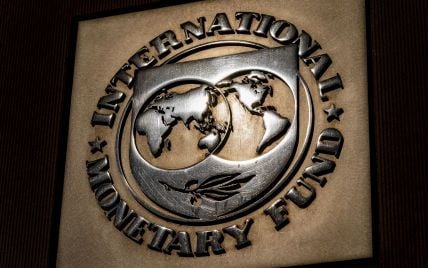
The International Monetary Fund recommends that Ukraine comply with the national revenue strategy to establish tax fairness.
The International Monetary Fund, as part of increasing the potential of domestic sources of financing, advises Ukraine to further increase the value added tax (VAT), because it needs immediate revenues as early as next month.
This was stated in an interview with the agency “Interfax-Ukraine” in Washington, Deputy Head of the IMF Mission to Ukraine Trevor Lessard.
According to him, increasing the VAT rate will improve the situation with the receipt of funds. At the same time, he noted the need for fairness in the Ukrainian tax system and a full-fledged carbon border adjustment mechanism (CBAM).
“I think if you want immediate revenue and you want to do it in an efficient, large-scale way that will get you revenue next month, it's hard to think of a better policy option than raising the VAT rate, in terms of how much you can raise, how it spreads the burden of the tax increase and all that,” said Trevor Lessard.
He also referred to the National Revenue Strategy, which is about long-term reforms to raise more tax. At the same time, he said, other parts of VAT are also very important.
“One of them is that the Ukrainian tax system is inherently unfair in terms of who pays taxes and who doesn't, how much they pay, and that dynamic has socio-political as well as economic implications. So people who are currently paying taxes really don't want to pay more until people who aren't paying taxes start paying a little bit,” the deputy chairman explained.
Improving tax fairness is one of the goals of the national revenue strategy, according to Lessard.
“There are a lot of things about customs, simplified taxation, some other tax reforms that, although they are planned to increase revenues, are a really important part of improving fairness,” Lessard added.
Ukraine has a chance to improve the investment climate by changing tax policy
Ukraine must make its tax policy more competitive, Lessard believes. In the area of tax changes, he noted the importance of bringing excise taxes, in particular on alcohol and tobacco, to the levels set in the European Union.
“But what is not talked about so much is that Europe is going to implement the Carbon Border Adjustment Mechanism (CBAM). If I were a neighbor of Europe, I probably wouldn't want to get into this mess and pay big export duties because I'm on the wrong side of this border adjustment mechanism. So, instead of paying at the border, if you're developing a Revenue Strategy and you're thinking about increasing fairness, this is also an opportunity to “green” your tax system, to get on the right track in terms of joining the EU (…),” Lessard concluded.
Recall that economic experts believe that the tax increase in Ukraine from October 1, which was recently adopted by the Verkhovna Rada, contradicts the current legislation, because the Tax Code states that such changes will only take effect six months after they come into force.
